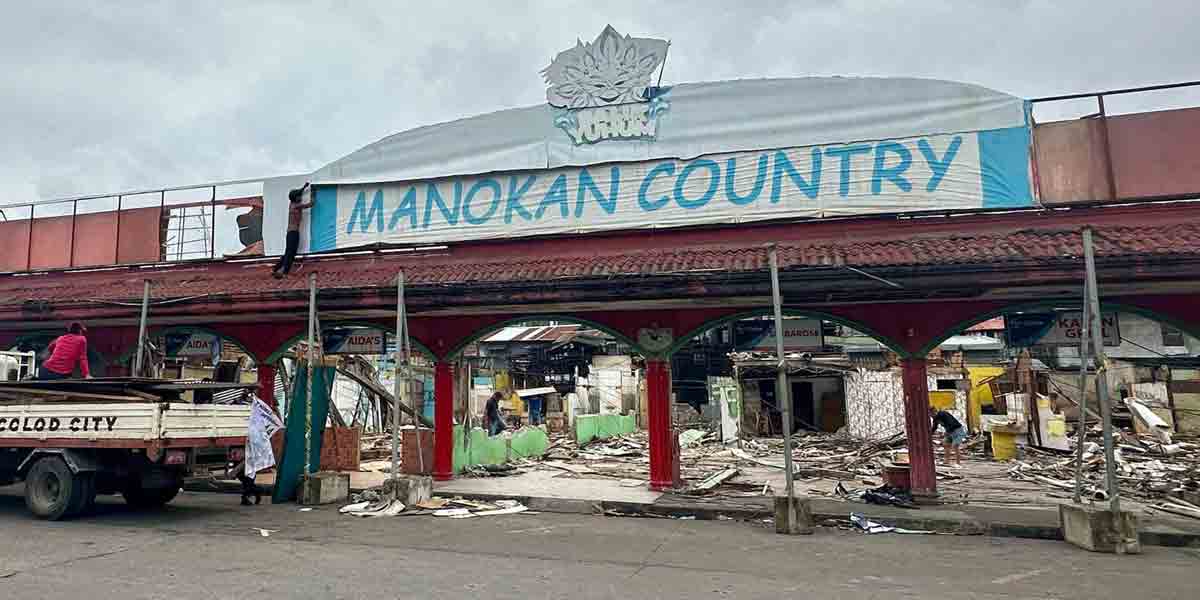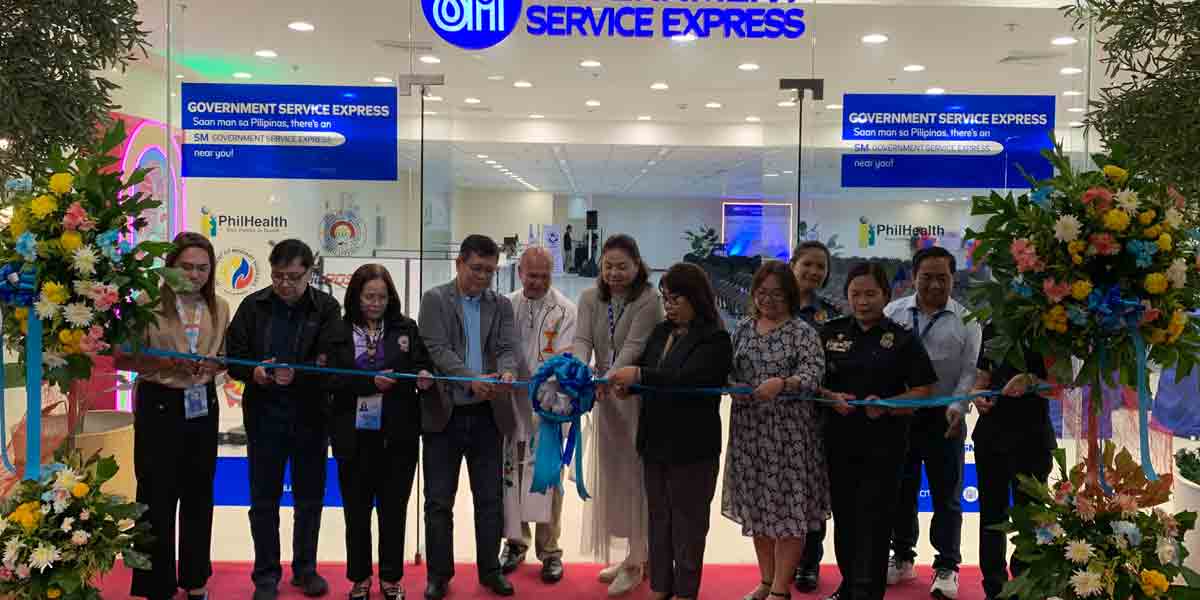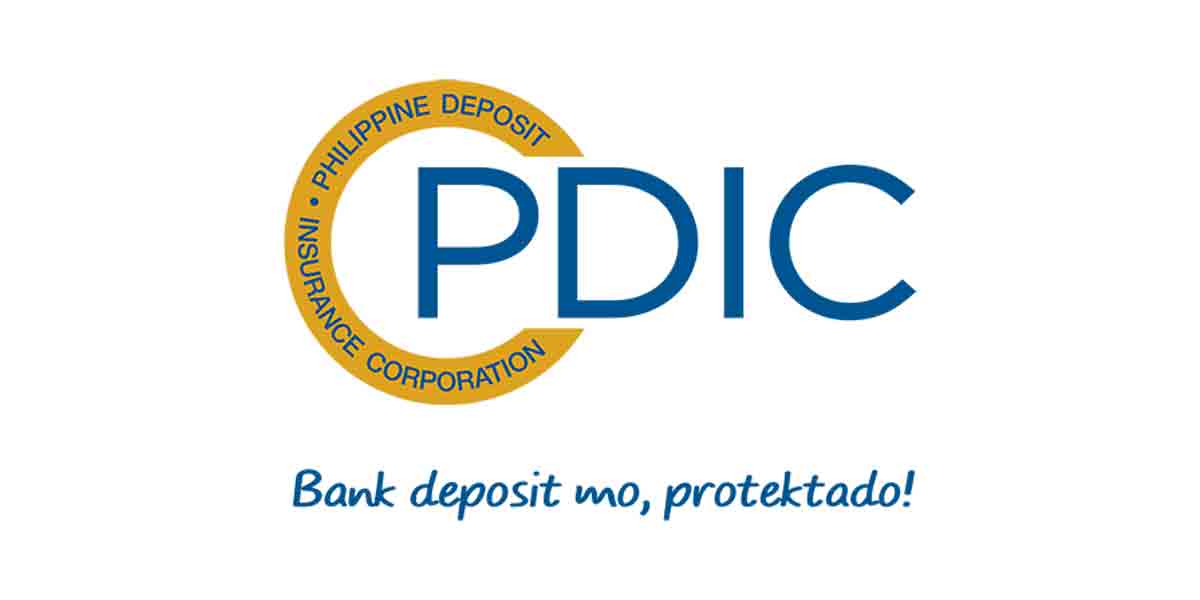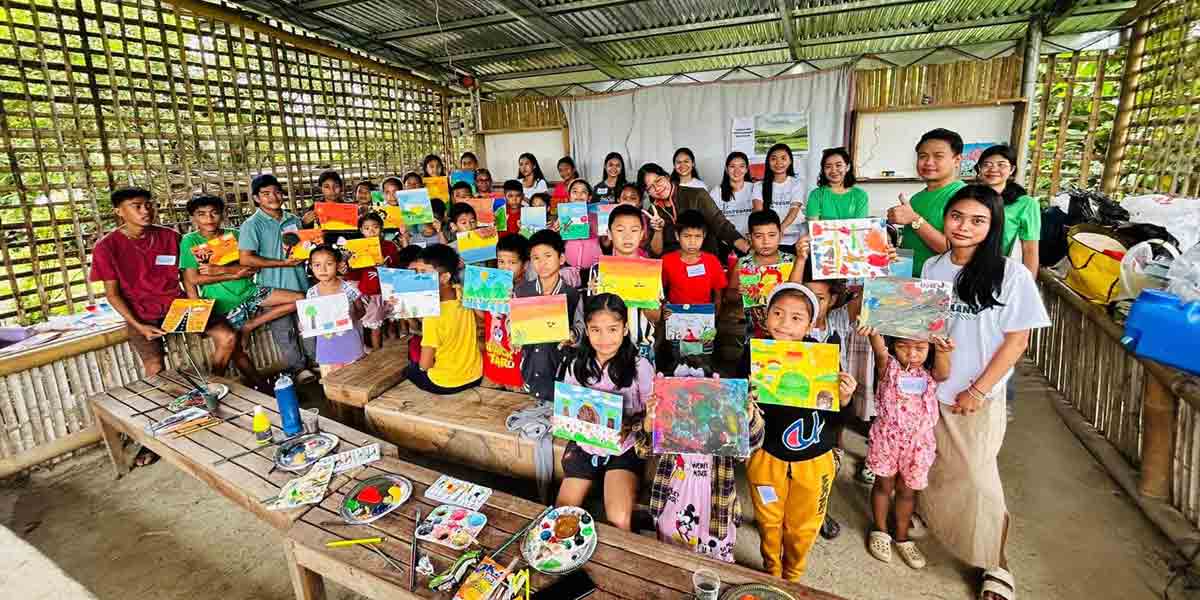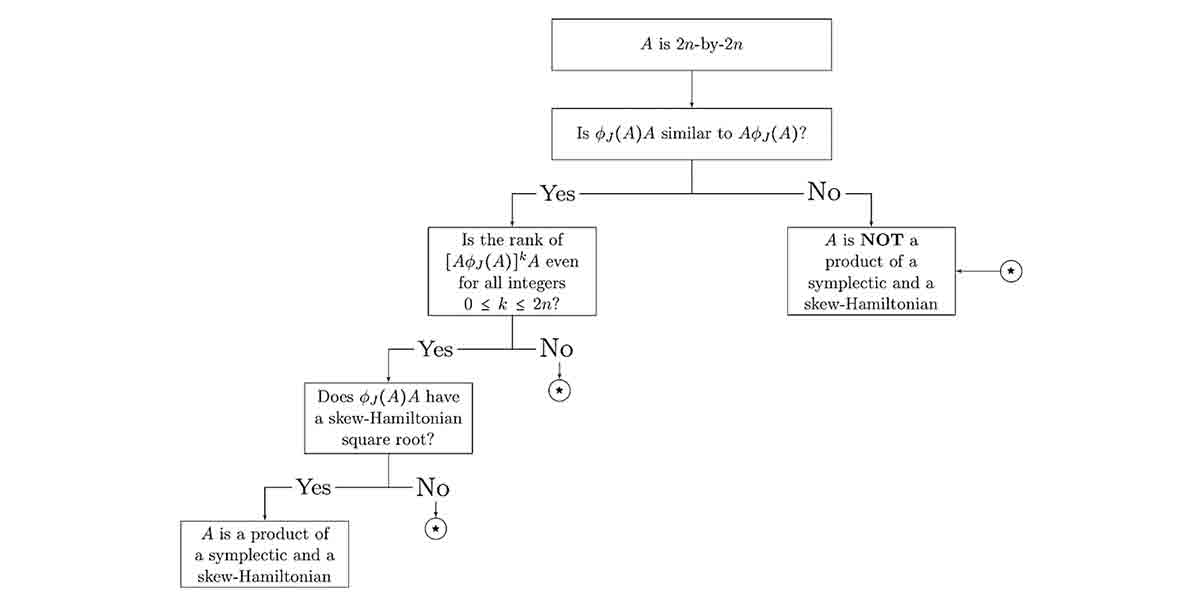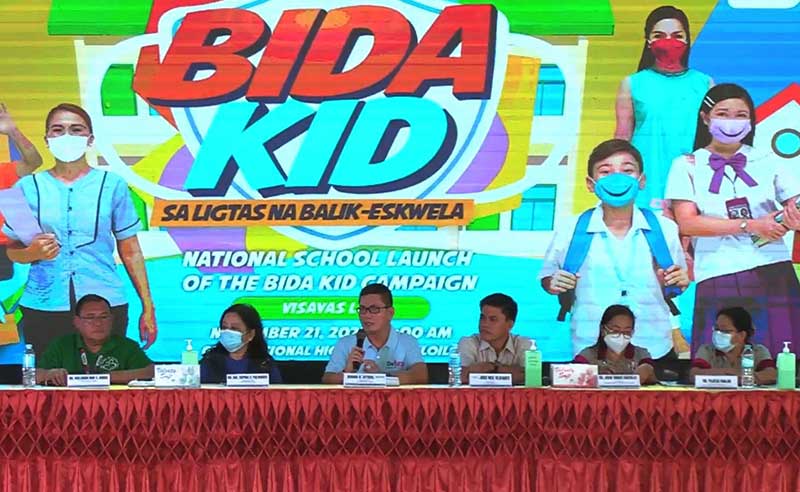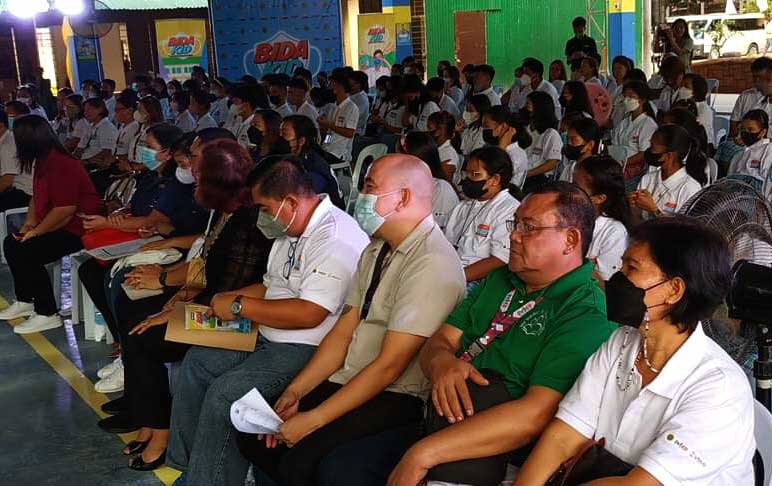By John Noel E. Herrera
The Department of Education (DepEd)-Western Visayas launched the Visayas leg of DepEd BIDA Kid campaign to support the safe reopening of face-to-face classes and amplify its call to follow health and safety protocols on Monday, Nov 21, 2022 at Oton National High School in Iloilo province.
DepEd-6 regional director Dr. Ramir Uytico said that the BIDA Kid campaign in partnership with the Department of Health (DOH) and the United States Agency for International Development (USAID) promotes the “3Bs” or the bakuna, bayanihan and bida behavior as “these should be practiced as a way of life for our learners to ensure prevention of virus in the schools, in their households and community.”
Uytico added that the reopening of face-to-face classes proved that “we are recovering from the impacts of COVID-19 (coronavirus disease 2019)” as the focus of different institutions has already shifted from pandemic response to pandemic recovery.
But he acknowledged that the COVID-19 pandemic affected the learning process of students and forced them to attend classes through different learning modalities, but DepEd-6’s basic education recovery and continuity plan, which has educational innovations, managed to address some of the gaps and losses in learning outcomes of students.
Oton NHS Supreme Student Government (SSG) President Fiona Ivon Gaan also expressed during the program that education has been “more difficult for students like her since the pandemic started.”
“Some of us stopped studying, others continued on through different platforms of education like modular learning, online, or blended learning. Despite the fact that COVID-19 is still in progress and classes already resumed, there are still problems and shortcomings that have not yet been addressed or resolved,” she said.
DepEd-6 earlier said that the agency has been proactive in creating policies that will prioritize the health and safety of the learners amid the implementation of five-day in-person classes which already started on Nov 2, 2022.
DepEd-6 noted the role of schools in strengthening the community monitoring and referral systems with Local Government Units (LGUs) and health centers for safe transportation and home care isolation whenever there are learners who will test positive for COVID-19.
There is also a continuous implementation of school-based vaccination and other medical services, as schools already have their own Emergency and Contingency Plan in cases there will be learners or personnel that have or show covid-like symptoms.
Meanwhile, DOH-6 OIC assistant regional director Ma. Sophia S. Pulmones emphasized the importance of vaccination against COVID-19 to maintain a safe school environment for the learners, and teaching and non-teaching personnel.
DepEd Spokesperson Michael T. Poa added that it is important to continue “inculcating the culture of observing proper hygiene” as more than 97 percent of public schools in the country are already implementing the five-day in-person classes.
“Kaya napaka-importante din po to continue inculcating yung culture of observing proper hygiene sa mga paaralan, actually itong past two years, our main concern is COVID-19, pero in fact napakarami pang sakit o sakuna na pwedeng maranasan o sumapit sa mga mag-aaral and teachers, that is why it is very important to really educate and instill ang culture of hygiene sa ating schools,” Poa said.
USAID Office of Health director Michelle Lang-Alli also stressed that while restrictions against COVID-19 have started to loosen up, “our fight against COVID-19 is far from over.”
“While it may seem that things are back to normal and the pandemic is over, the virus is not yet and might not be completely done. It is so important that we continue COVID-19 preventive behaviors, including vaccination to ensure everyone’s health and safety,” Lang-Alli said in a video message.


